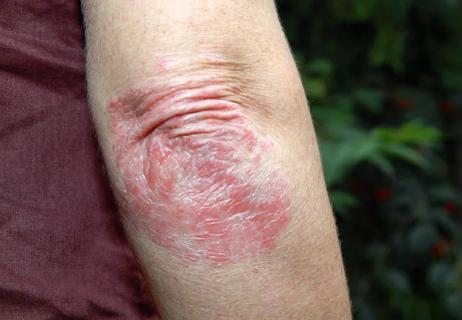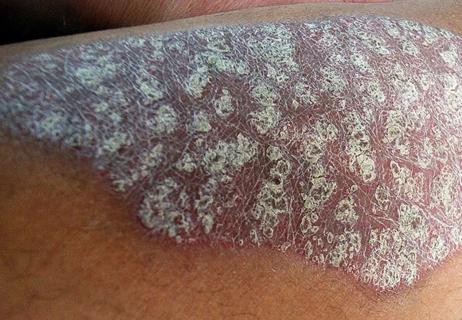Tag debug info: client: {"assets":{},"datasets":{},"live":{},"projects":{},"users":{},"observable":{"assets":{},"datasets":{},"live":{},"projects":{},"users":{}}} Now: 1770472893701 Cache Key: cqdTagPageBySlug:psoriasis fetchCache[cqdTagPageBySlug:psoriasis].expirationTime: falsey fetchCache[cqdTagPageBySlug:psoriasis]. seconds remaining: falsey All fetchCache expiration times: -- Key: cqdNotFoundPage, seconds remaining: 6082 -- Key: cqdTagPageBySlug:chest, seconds remaining: -4042 -- Key: cqdPostsByTag:cqd-migrated-tag-22272,1,10, seconds remaining: -3990 -- Key: cqdTagPageBySlug:testosterone-therapy, seconds remaining: -3853 -- Key: cqdPostsByTag:cqd-migrated-tag-23229,1,10, seconds remaining: -3808 -- Key: cqdTagPageBySlug:mesenteric-fat, seconds remaining: -2303 -- Key: cqdPostsByTag:cqd-migrated-tag-26538,1,10, seconds remaining: -2255 -- Key: cqdTagPageBySlug:deintensification, seconds remaining: -1621 -- Key: cqdPostsByTag:cqd-migrated-tag-20523,1,10, seconds remaining: -1566 -- Key: cqdTagPageBySlug:percutaneous, seconds remaining: -1297 -- Key: cqdPostsByTag:cqd-migrated-tag-267,1,10, seconds remaining: -1242 -- Key: cqdTagPageBySlug:webchats, seconds remaining: -719 -- Key: cqdPostsByTag:cqd-migrated-tag-17171,1,10, seconds remaining: -676 -- Key: cqdTagPageBySlug:spasticity, seconds remaining: 321 -- Key: cqdPostsByTag:cqd-migrated-tag-4101,1,10, seconds remaining: 368 -- Key: cqdTagPageBySlug:hl7, seconds remaining: 1892 -- Key: cqdPostsByTag:cqd-migrated-tag-25912,1,10, seconds remaining: 1945 -- Key: cqdTagPageBySlug:active-breathing-control, seconds remaining: 2176 -- Key: cqdPostsByTag:cqd-migrated-tag-21863,1,10, seconds remaining: 2229 -- Key: cqdTagPageBySlug:jonathan-eisengart, seconds remaining: 2748 -- Key: cqdPostsByTag:cqd-migrated-tag-447,1,10, seconds remaining: 2792 -- Key: cqdTagPageBySlug:self-compassion, seconds remaining: 3182 -- Key: cqdPostsByTag:cqd-migrated-tag-20888,1,10, seconds remaining: 3225 -- Key: cqdTagPageBySlug:complex-colorectal-polyps, seconds remaining: 3473 -- Key: cqdPostsByTag:cqd-migrated-tag-21449,1,10, seconds remaining: 3521 -- Key: cqdTagPageBySlug:rf-ablation, seconds remaining: 3990 -- Key: cqdPostsByTag:cqd-migrated-tag-23200,1,10, seconds remaining: 4032 -- Key: cqdTagPageBySlug:alt, seconds remaining: 4193 -- Key: cqdPostsByTag:cqd-migrated-tag-23799,1,10, seconds remaining: 4238 -- Key: cqdTagPageBySlug:pediatric-functional-constipation, seconds remaining: 4452 -- Key: cqdPostsByTag:cqd-migrated-tag-24451,1,10, seconds remaining: 4503 -- Key: cqdTagPageBySlug:sex-differences, seconds remaining: 4721 -- Key: cqdPostsByTag:cqd-migrated-tag-19905,1,10, seconds remaining: 4771 -- Key: cqdTagPageBySlug:leader-study, seconds remaining: 5663 -- Key: cqdPostsByTag:cqd-migrated-tag-4995,1,10, seconds remaining: 5714 -- Key: cqdTagPageBySlug:aspiring, seconds remaining: 6082 -- Key: cqdPostsByTag:cqd-migrated-tag-21382,1,10, seconds remaining: 6133 -- Key: cqdTagPageBySlug:student-shadowing, seconds remaining: 6626 -- Key: cqdPostsByTag:cqd-migrated-tag-17675,1,10, seconds remaining: 6666 -- Key: cqdTagPageBySlug:cardioversion, seconds remaining: 6907 -- Key: cqdPostsByTag:cqd-migrated-tag-18482,1,10, seconds remaining: 6950 -- Key: cqdTagPageBySlug:bacteria, seconds remaining: 7107 -- Key: cqdPostsByTag:cqd-migrated-tag-20051,1,10, seconds remaining: 7155 -- Key: cqdTagPageBySlug:opioids, seconds remaining: 7443 -- Key: cqdPostsByTag:cqd-migrated-tag-924,1,10, seconds remaining: 7503 -- Key: cqdTagPageBySlug:ash, seconds remaining: 8837 -- Key: cqdPostsByTag:cqd-migrated-tag-955,1,10, seconds remaining: 8876 -- Key: cqdTagPageBySlug:retinal-dystrophy, seconds remaining: 9546 -- Key: cqdPostsByTag:cqd-migrated-tag-24394,1,10, seconds remaining: 9577 conditions: -- false, -- NA, -- NA, -- NA -- false Cache miss for key cqdTagPageBySlug:psoriasis - retrieving from Sanity CCCache.dataFetchCount: 4599 Cache cleanup seconds remaining: 21892
Advertisement
Advertisement
Multiple comorbidities are associated with pediatric psoriasis
E-coaching program is tailored for those with the disease
Case-control study assesses risk factors that play a role in tumor necrosis factor-α inhibitor-induced psoriasis
Co-management increases opportunities for research and education
Advertisement
Cleveland Clinic is a non-profit academic medical center. Advertising on our site helps support our mission. We do not endorse non-Cleveland Clinic products or services. Policy
Study finds significant histologic differences between TNFi-induced psoriasis and idiopathic psoriasis
Early focus will be selective TNF-α receptor inhibition
Rendered: Sat Feb 07 2026 14:01:33 GMT+0000 (Coordinated Universal Time)
9500 Euclid Avenue, Cleveland, Ohio 44195 |
800.223.2273 | ©
2026 Cleveland Clinic. All Rights Reserved.





